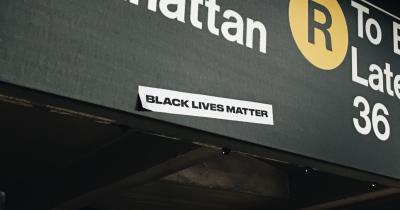
Why We Are Not Making Progress Against Racism
For those who believe Black people are already equal with white people, any policy that seeks to address anti-Black discrimination looks like an attempt to give Blacks an advantage.

“At this point, the whole race thing is over . . . it doesn’t matter anymore. We’ve transcended it. Now we have a black president, so clearly we are not racist,” stated one young woman after the first election of Barack Obama as president of the United States.1 In the euphoria of Obama’s first election, many Americans—on the left, right, and center—agreed that America had become post-racial. Today, many on the left recognize that America is still struggling with racism. But what liberals may not fully appreciate is the degree to which the rest of America is still deep within a post-racial haze.
Today, for every dollar of wealth that whites have, blacks have only a few cents.
New research from social psychologists at Yale and Northwestern Universities reveals that Americans—especially rich, white Americans—greatly overestimate how much racial progress we have made toward economic equality. Averaging across 5 economic measures, the researchers find that Americans estimate that we have made about 25 percent more progress toward black-white economic equality than we actually have made.
Worse still, Americans are most inaccurate on the most important economic measure—wealth. Scholars have come to recognize that wealth—the value of assets minus debts—is the most important measure of a family’s overall economic well-being. The social psychologists find that Americans overestimate our progress toward black-white wealth equality by about 80 percent. Today, for every dollar of wealth that whites have, blacks have only a few cents.
This view that black people are economically equal with white people or are rapidly approaching equality is part of what is animating conflicts over racism today.
This view that black people are economically equal with white people or are rapidly approaching equality is part of what is animating conflicts over racism today. For example, the journalist Jesse Washington reports, “a lot of the people who are upset with the [NFL] flag protests do not believe that African-Americans are still treated unfairly in this country, that [African Americans] are still subject to oppression. They think that there is a level playing field.”
For those who believe that black people are already equal with white people, any policy that seeks to address anti-black discrimination looks like an attempt to give blacks an advantage over whites. Many Americans, particularly Republicans, believe that today there is more discrimination against white people than against black people.
Because so many Americans are not grounded in the reality of American racism, the call for a “conversation on race” is a bad idea. We need Americans to go on fact-finding missions on racism, not try to engage in conversation when there is no agreement on the basic facts.
We have to be aware that because we are a segregated society, many white people learn about black people from the media. Some white people see prominent, highly successful black people in movies and on television and assume that those individuals are indicative of the economic standing of African Americans. Also, there is right-wing media that consciously tries to mislead white Americans about racism and to foster a sense of white victimization. We have to find ways to penetrate Americans’ information bubbles.
Another challenge is the fact that it is high-income white people who are most inaccurate about how much more needs to be done to address racism. High-income white people are the most politically powerful segment of America because politicians tend to rely on them to finance their political campaigns. They have disproportionate influence over what is and is not seen as a legitimate political issue. This is another reason why we need to reduce the influence of money in politics, and to foster more non-rich, multi-racial engagement in the political process.
The first step in solving a problem is admitting that you have one. Only when more Americans face up to the reality of racism in American life will be able to make progress against racism in American life.
- 1Quoted in Mark P. Orbe, Communication Realities in a “Post-Racial” Society: What the U.S. Public Really Thinks about Barack Obama (Lanham, MD: Lexington Books, 2011) [Kindle e-book], Chapter 6, “Barack Obama Transcends Race” section.




